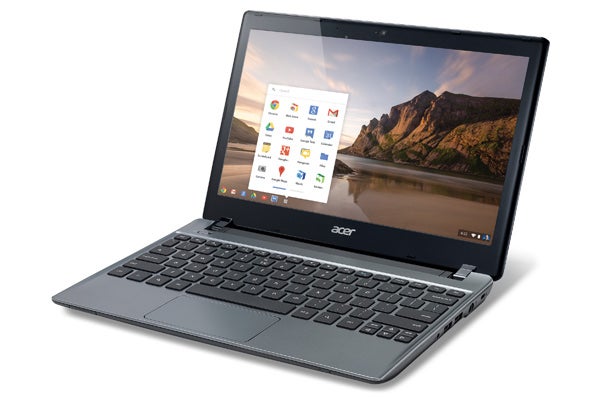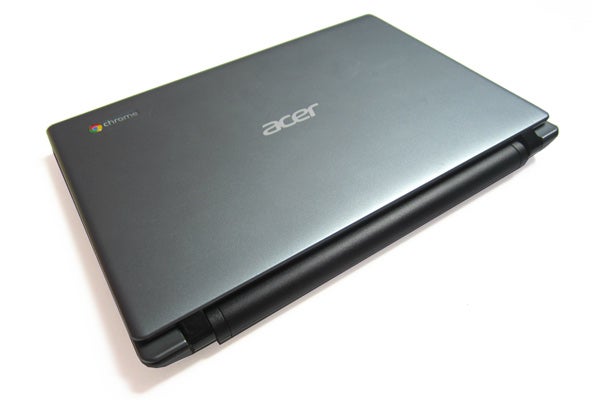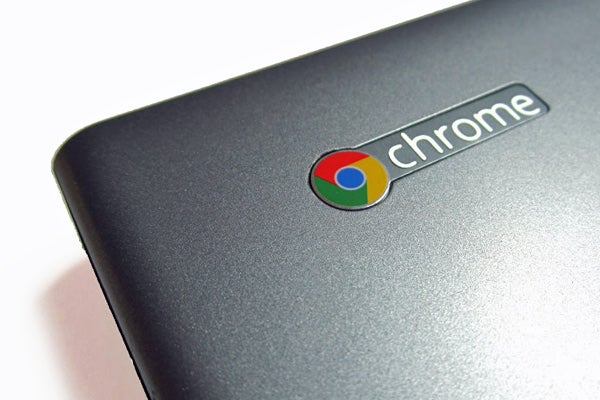Acer C7 Chromebook Review - Battery Life and Verdict Review
Battery Life and Verdict
A low-cost Chromebook that can be yours for under £200.

Sections
- Page 1 Acer C7 Chromebook Review
- Page 2 Battery Life and Verdict Review
Acer C7 Chromebook – Battery Life and Storage
One of the things that impressed us most about the Samsung Series 3 was the impressive stamina of the battery – we managed to get around six hours on a single charge. The Acer C7 Chomebook is less impressive, offering around 3-4 hours of real-world usage. We couldn’t run our usual battery-testing benchmarks, so we left a HD video running on YouTube with the screen and volume set to half capacity, and after an hour the battery had dropped 35 per cent.
One of the more puzzling choices made by Acer with the C7 Chromebook is the inclusion of of a 320GB internal hard disc drive. Chrome as an OS is built around the concept of cloud storage; all of your files are saved online, meaning that there’s little need for saving anything on the computer itself. With services such as Picasa, Google Music and Google Drive, it’s genuinely difficult to perceive any situation where you’d need a cavernous 320GB drive – especially when you get 100GB of free cloud storage with Google Drive, which lasts for two years. 
That added internal memory comes with an additional cost. While the internal fan on the Acer C7 is relatively quiet, the completely silent Samsung Series 3 is the clear winner in this regard. Samsung’s Chromebook uses 16GB of solid-state storage, which results in less heat build-up inside the casing, hence the lack of a noisy fan.
It’s a real shame that Acer didn’t take the same approach with the C7 Chromebook, especially when you factor in the slower boot time from cold – 24 seconds when compared to the 9 seconds of the Series 3 – which is down to the sluggish nature of traditional hard discs when compared to solid-state memory. In standby mode, the C7 boots in around 4 seconds, while the Series 3 starts up near-instantaneously, taking around 2 seconds.
Acer C7 Chromebook – Verdict
The jury may still be out on whether or not Google’s Chromebook concept can really change the laptop market, but if you’re a light user or tend to spend most of your time on the web, then the Acer C7 Chromebook is worth considering. The boot time may be longer than the Samsung Series 3, but it’s still quicker than most traditional laptops, and the way Chrome seamlessly backs up your files is impressive. However, without 3G (there’s no SIM card slot on the C7) you’ll need to be connected to Wi-Fi to make the most out of it.
The C7’s biggest problem is that the Series 3 represents a much better choice. Granted, Samsung’s device has a weaker screen, awkward USB port placement and a keyboard which is missing the caps lock and delete buttons, but in every other regard it’s a superior product. It looks better, runs cooler and boots faster. In fact, overall performance is much better, thanks largely to the nippier solid-state storage used.
If you’re particularly precious about the number of keys you have under your fingertips, the size of your hard drive or the brightness of your screen – but aren’t concerned with what your laptop looks like – then by all means, check out Acer’s take on the Chromebook. Otherwise, you’d be better off stumping up the additional £30 for the Samsung Series 3.
How we test laptops
Unlike other sites, we test every laptop we review thoroughly over an extended period of time. We use industry standard tests to compare features properly. We’ll always tell you what we find. We never, ever, accept money to review a product.

